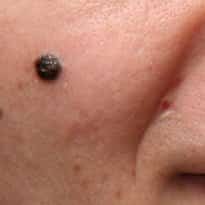Researchers at the University of Edinburgh have created an app to improve early diagnosis of skin cancer.
The app, called Dermofit, aims to train medical professionals to spot the signs of skin cancer earlier, by being able to accurately spot malignant and benign skin lesions and growths.
Professor Jonathan Rees, grant chair of dermatology at the University of Edinburgh, who has created the app in collaboration with Professor Bob Fisher from the university’s school of informatics, said that 30% of doctors will “automatically send a patient to hospital if they have a sign of a skin growth.”
“But the evidence is that the vast majority of people who are seen and referred do not have skin cancer or anything serious at all,” he said.
Professor Fisher said that the app works as a digital tool to educate GPs through a photo library of skin lesions to identify what a malignant one looks like.
“Practitioners can click on the image of a lesion of interest which then leads to further similar lesions,” he said.
“As lesions are selected, further sets of similar lesions are displayed. This gives familiarity with the different skin lesion types and allows users to differentiate between lesions that look similar, but that are from different skin lesion classes.”
Dermofit contains around 1,300 images. It has taken around four years to develop the algorithms to automatically group the photos, based on colour and textures, and to test the product.
The app, which has been licenced to Yorkshire based company Simedics through Edinburgh Research and Innovation, the university’s commercialisation arm, will be launched as a commercial product aimed at medical students, dermatology specialist nurses and GP trainees this autumn.
Professor Fisher said that the app would continue to improve and develop for further use over time.
“For example, it would be great if we could analyse the data of how people are using the search tool to diagnose so that we can improve things for the future,” he said.

